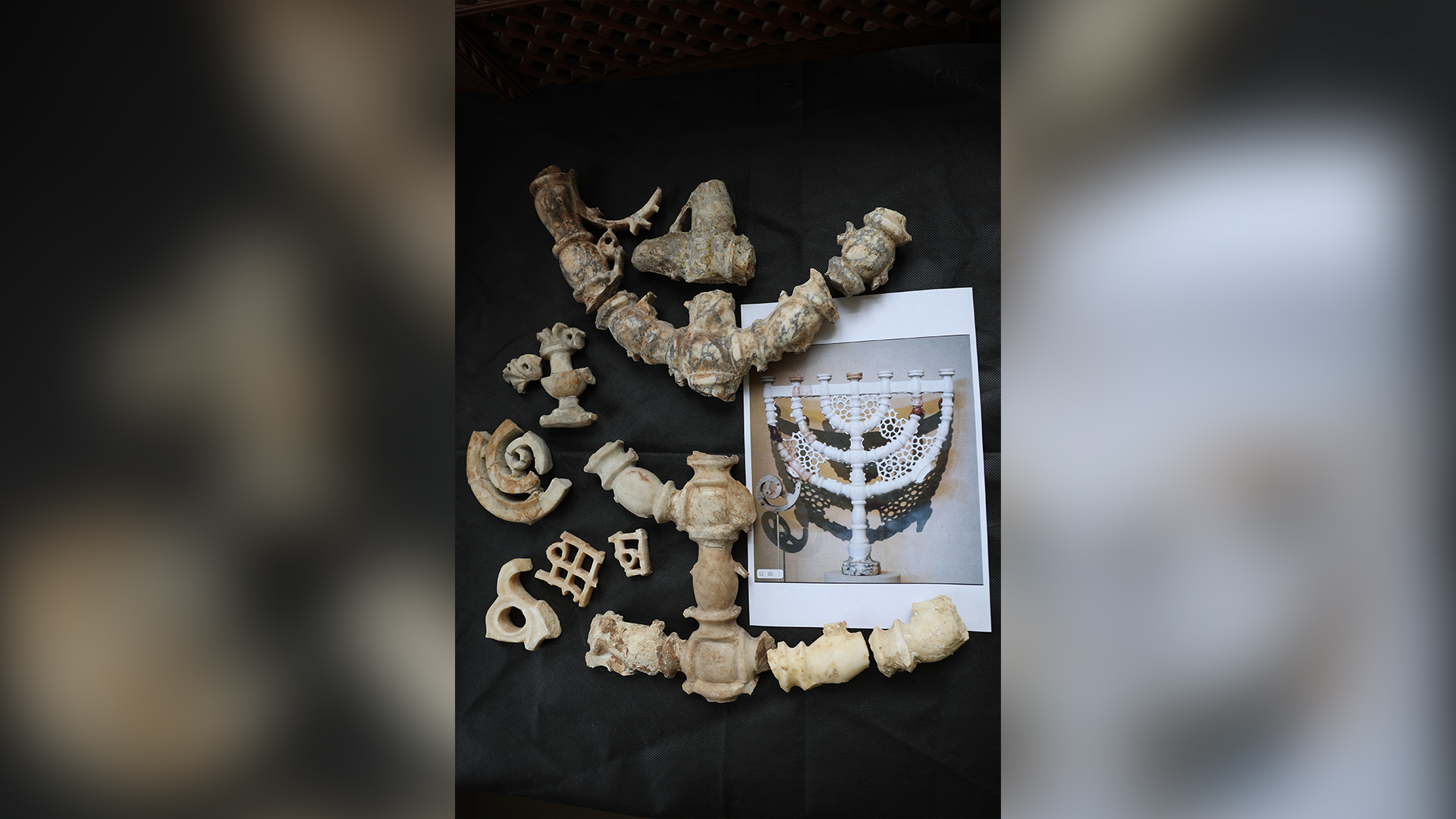
Archaeologists in southern Russia say they've discovered the ruins of a 2,000-year-old synagogue — a rare discovery given that buildings for Jewish worship from this period are seldom found outside the Holy Land.
The team made the discovery just a few miles east of Crimea on Russia's Taman Peninsula, where they're excavating the remains of an ancient Greek colony at the Phanagoria archaeological site. The synagogue's age hasn’t yet been verified in a peer-reviewed study, but it may date to more than 100 years before the Second Temple in Jerusalem was destroyed by Roman legions in A.D. 70.
Although the archaeologists on the project are convinced their dating is correct, it has been questioned by other experts, who suggest the synagogue was built later — perhaps in the fourth century A.D., well after the fall of the Second Temple.
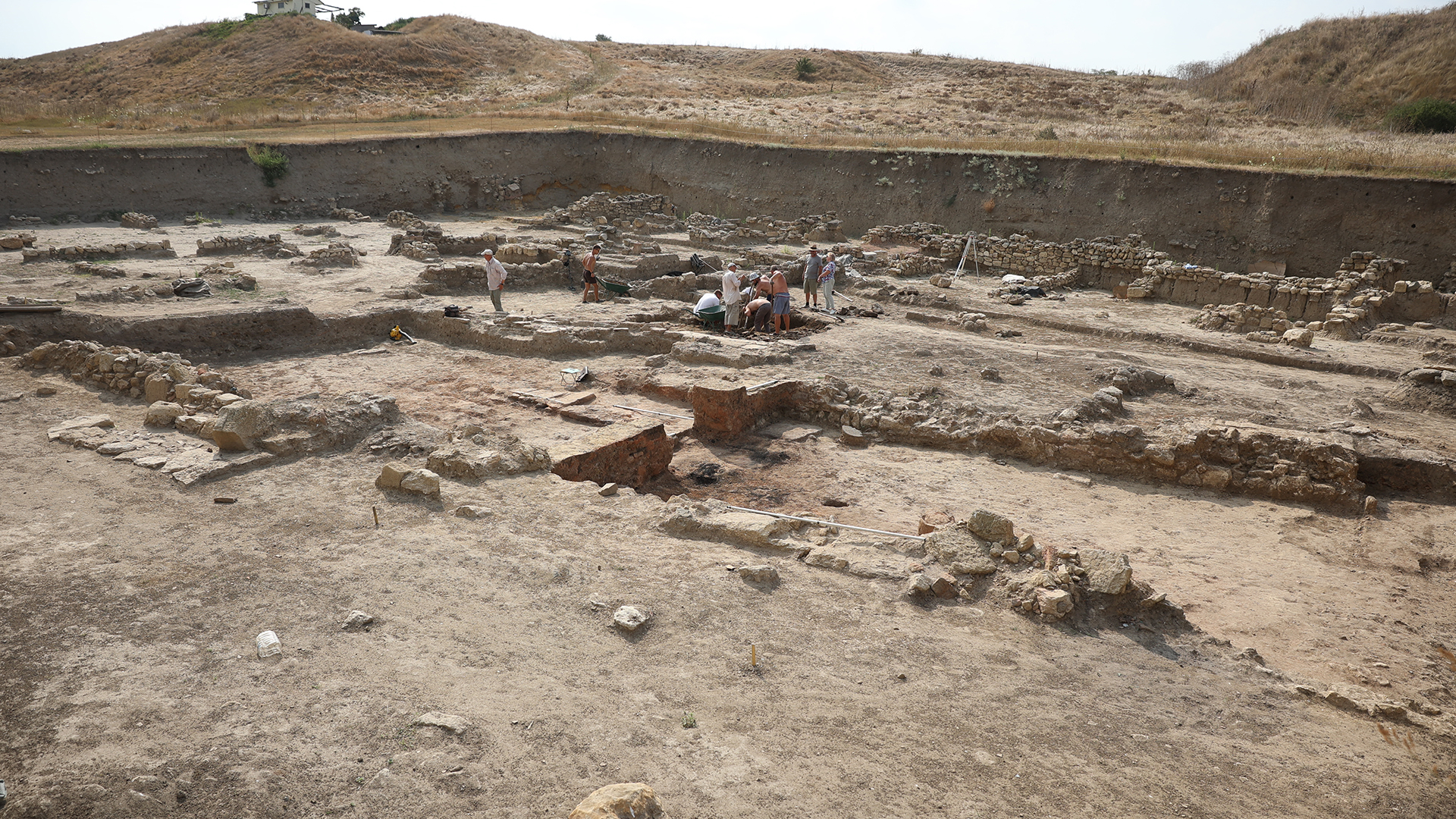
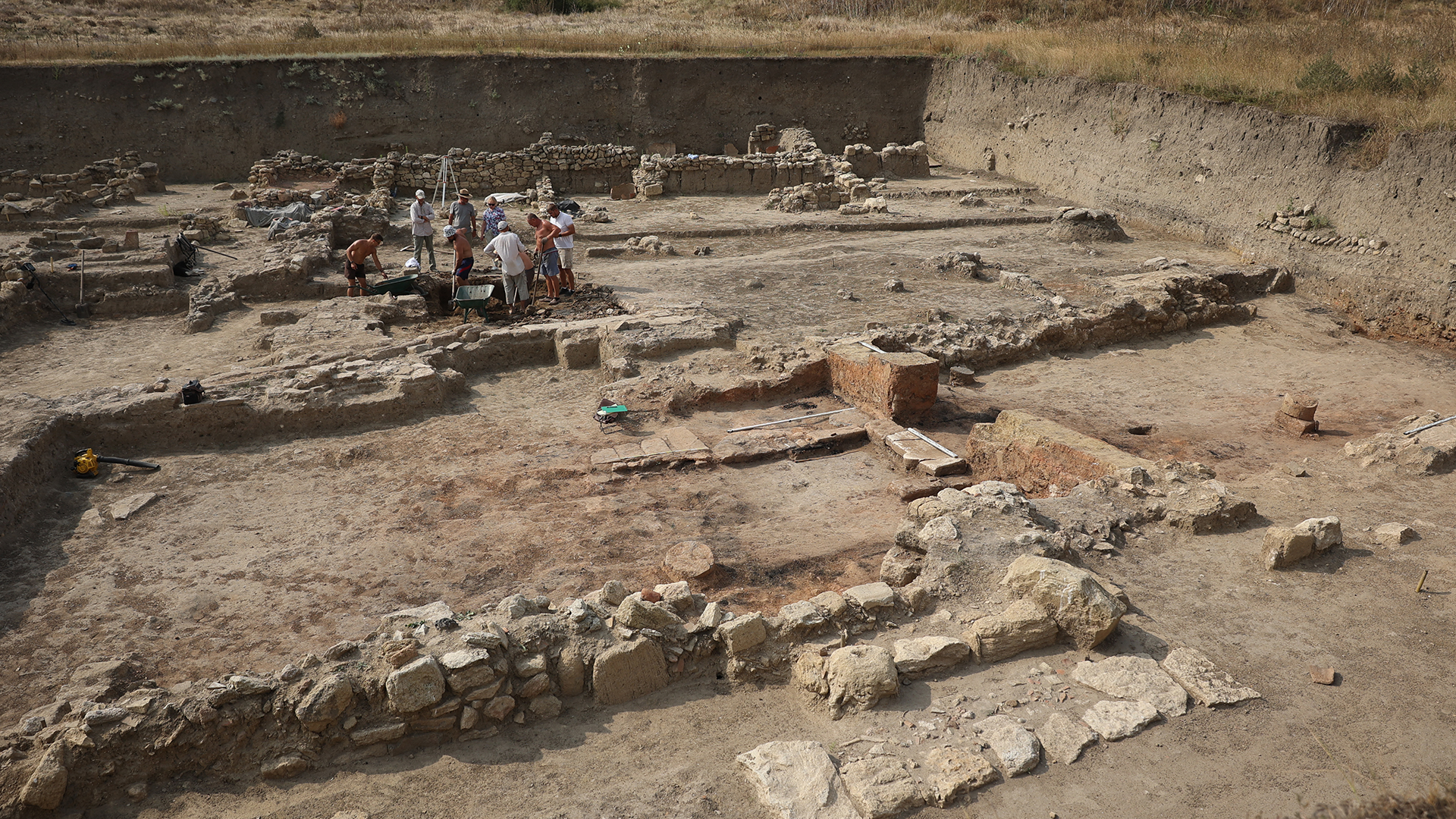
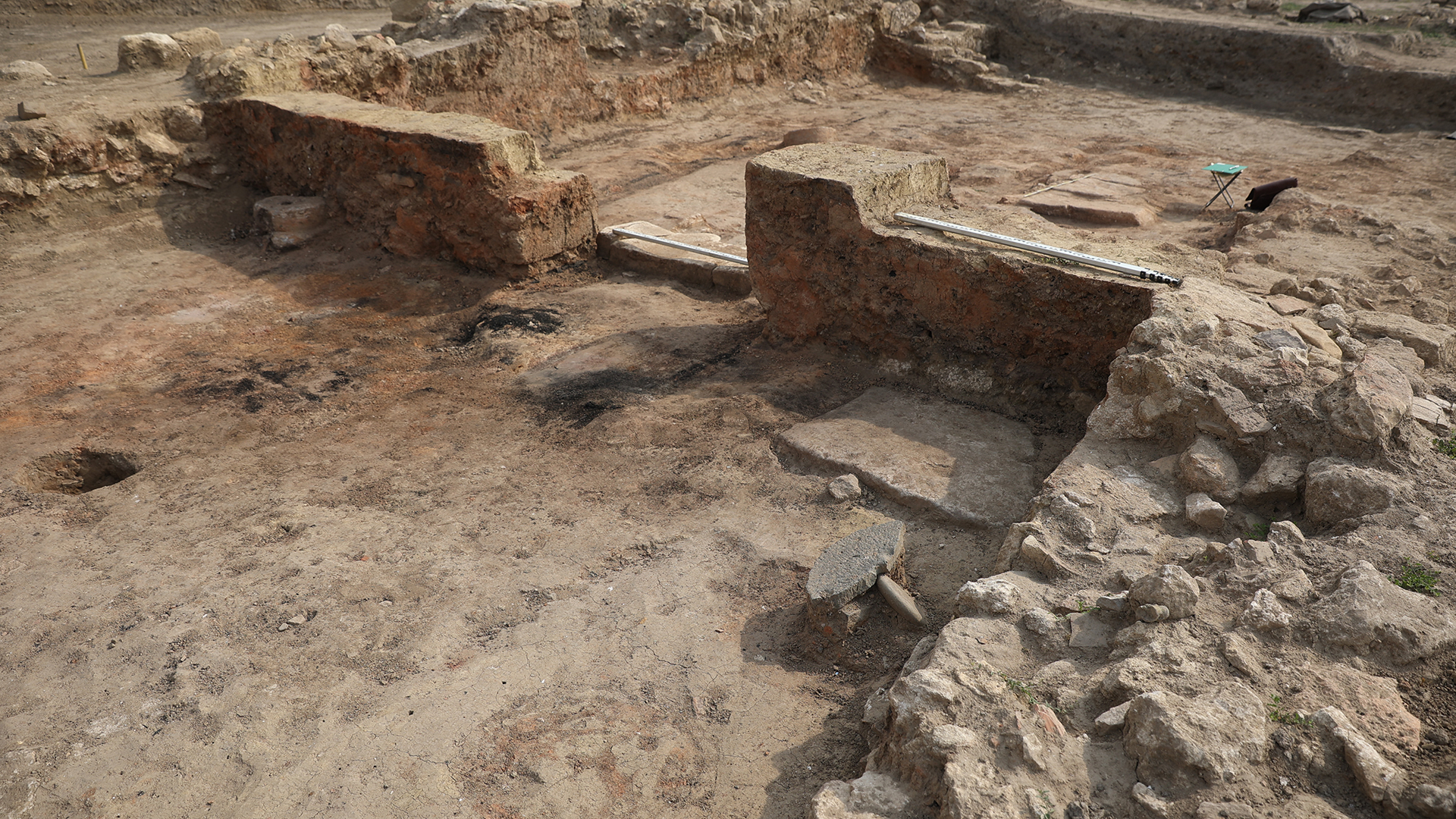
Ruben Bunyatyan, a spokesman for the Volnoe Delo Foundation — the Russian charity that funds the Phanagoria excavations — said analysis of marble tablets and inscriptions indicated the synagogue dated to the first century B.C.
He added that one tablet — inscribed with the Greek word "synagein," which is the origin of the English word "synagogue" and means "house of assembly" — may date to the fifth century B.C. and may have been brought from somewhere else.
Related: Medieval synagogue that predates the Inquisition found hidden under Spanish nightclub
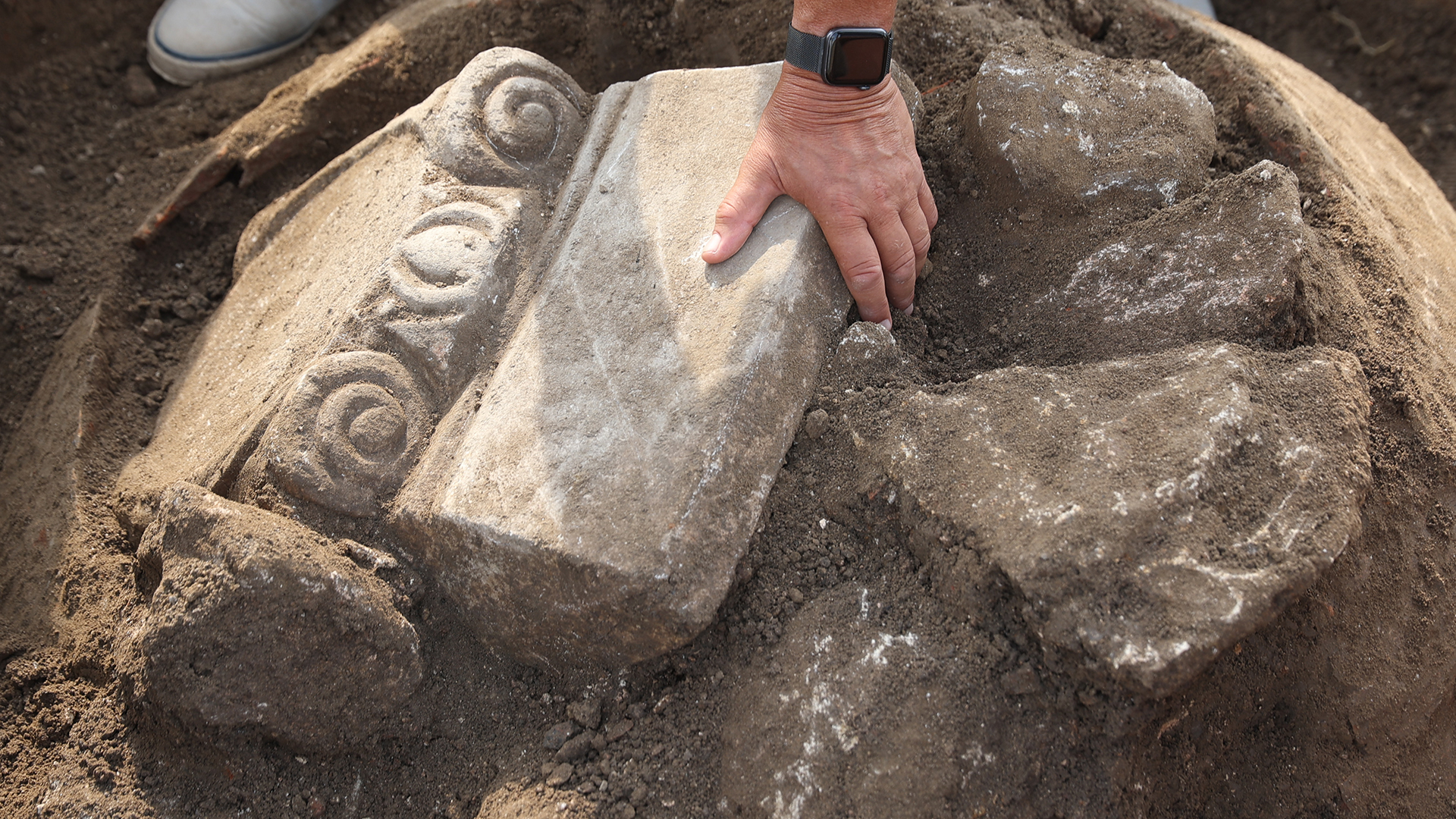
Ancient Phanagoria
Phanagoria was founded in the sixth century B.C. by refugees from the Greek city of Teos on the western coast of Anatolia (now Turkey), which was sacked by the Persians in 540 B.C.
Russian archaeologists have excavated the vast site since 2004, and last year they announced the discovery of a silver medallion depicting the Greek goddess Aphrodite in the grave of a young woman.
The Volnoe Delo Foundation was founded by the Russian billionaire and industrialist Oleg Deripaska, who has been sanctioned by the U.S. Department of Justice for violating U.S. sanctions, which he disputes.
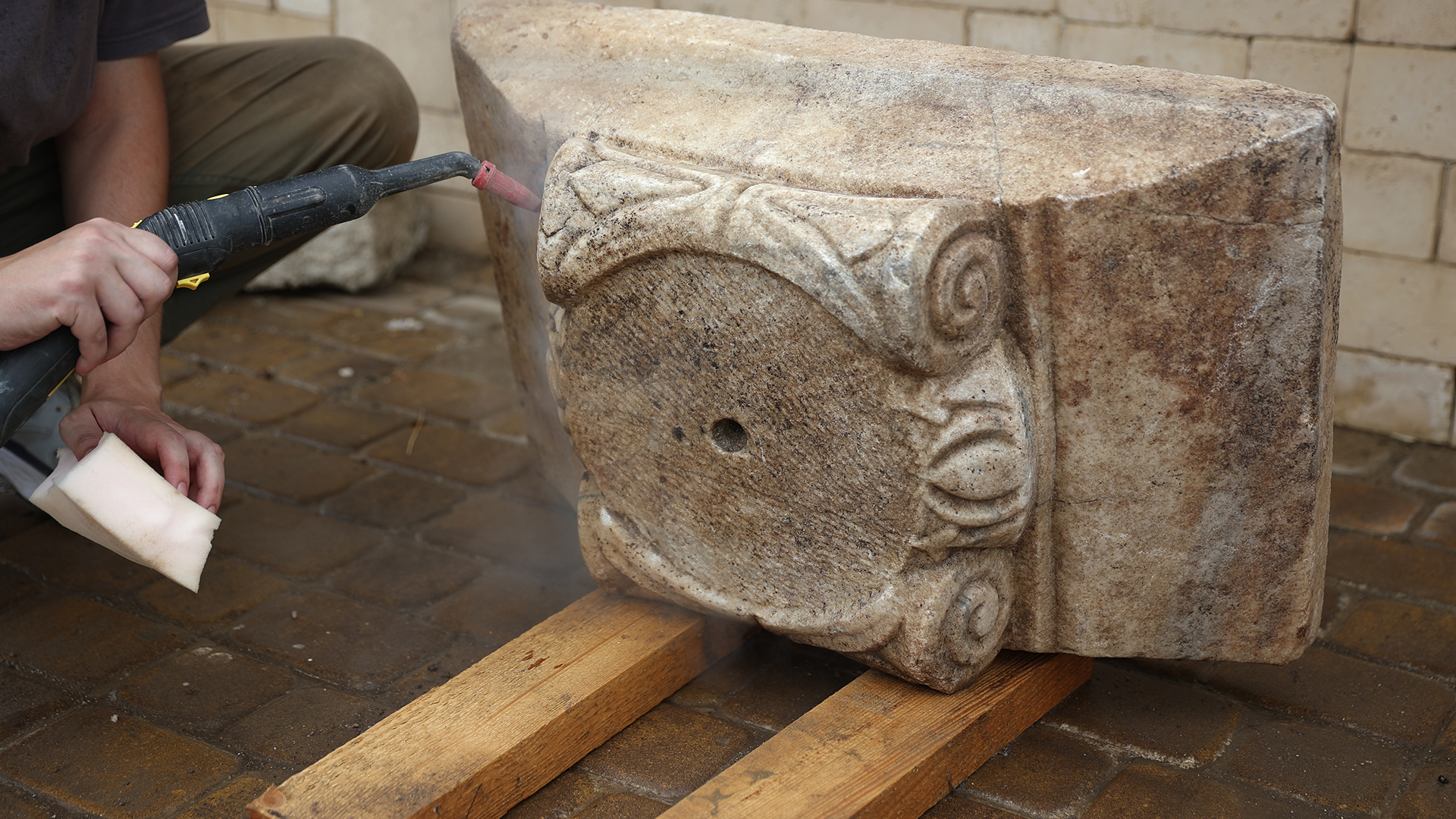
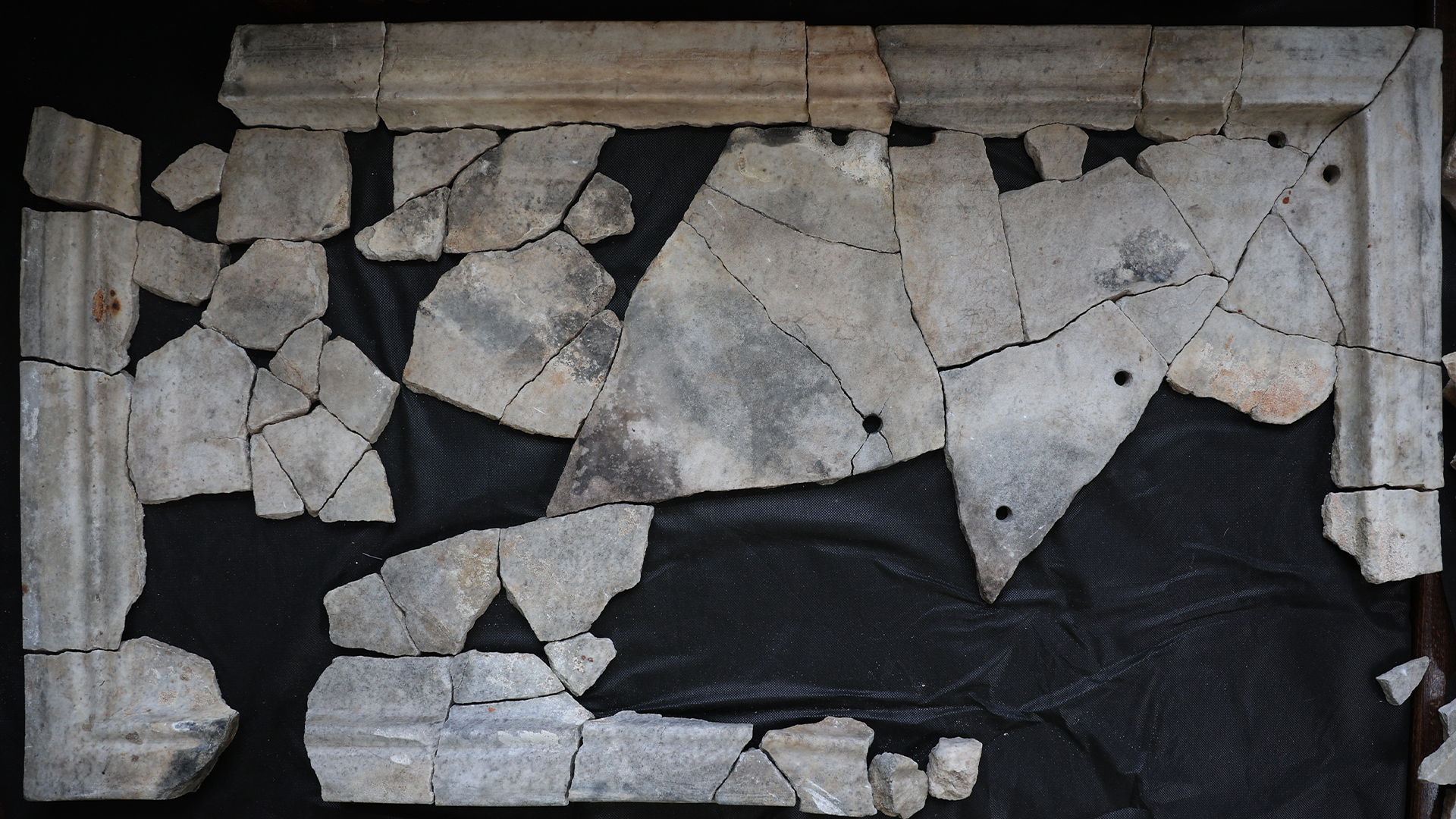
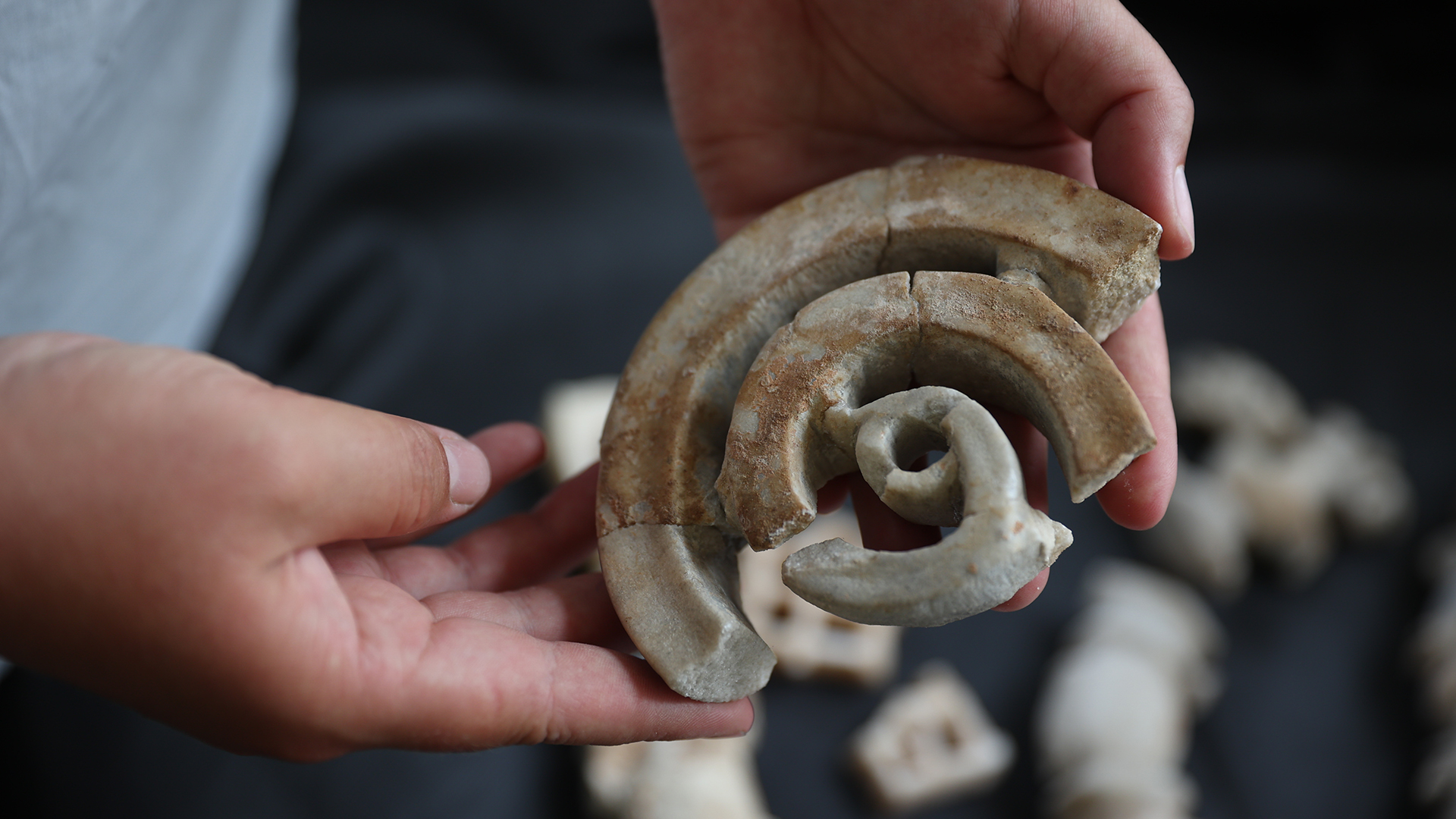
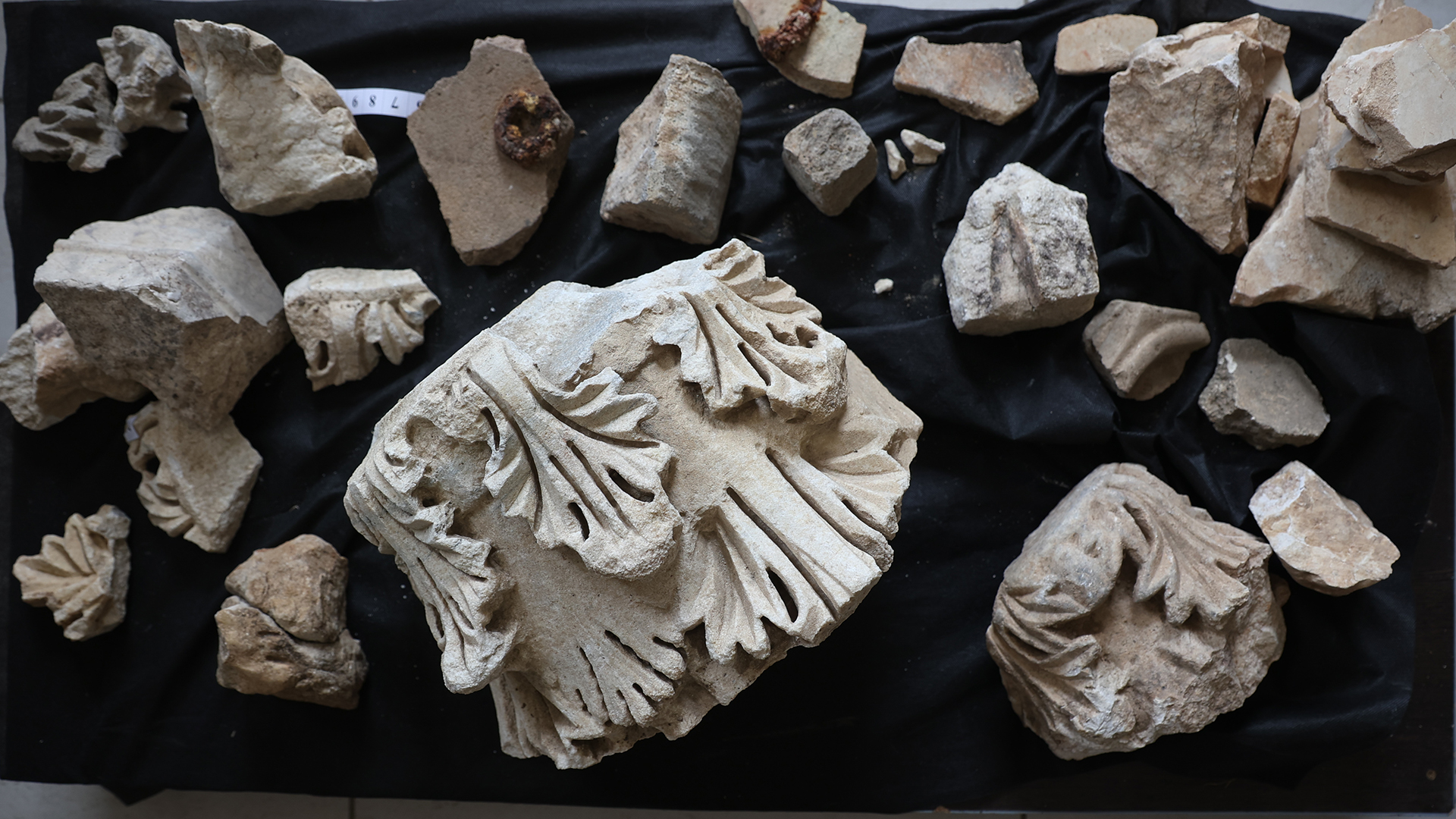
In a statement, Bunyatyan said the archaeologists had discovered the foundations and outlines of the synagogue's walls. Inside, they found inscribed marble stelae, or upright tablets; marble menorahs, or ceremonial nine-branched candlesticks; and the remains of marble columns, paintings and tiles.
The synagogue seems to have functioned until the mid-sixth century, when Phanagoria was sacked by local barbarian tribes, the statement said.
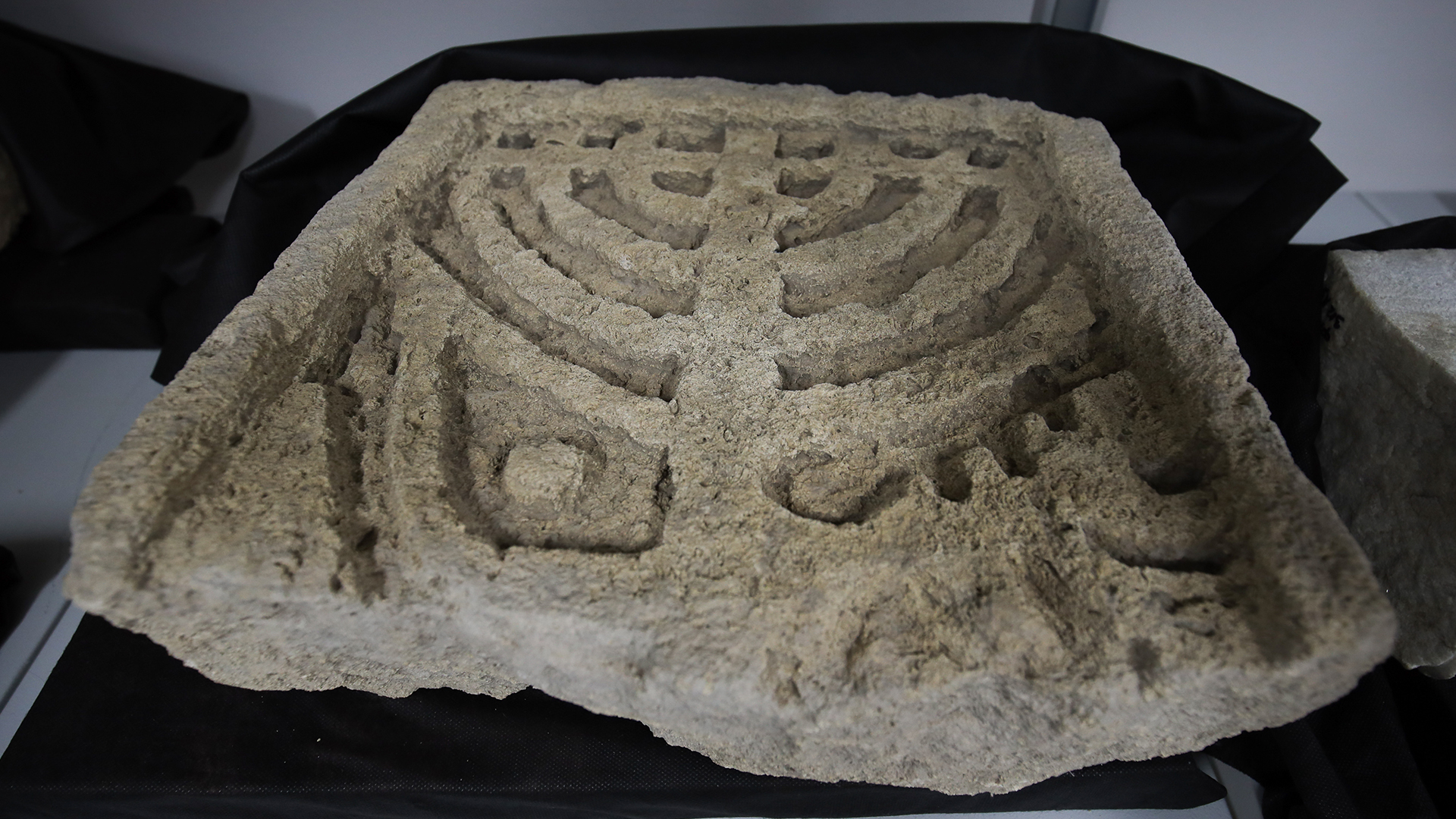
Jewish presence
A Jewish house of prayer at Phanagoria was mentioned in an inscription from A.D. 41 found at another ancient Greek city on the Black Sea shore. It also seems to appear in an inscription from A.D. 16. found at Phanagoria itself, but that inscription was heavily damaged and may not be entirely reliable, Bunyatyan said.
Evidence of such an early Jewish community outside the traditional land of Israel is extraordinary. But some experts are not convinced that the dating of the finds is accurate.
"In this period, the number of synagogues inside Israel were very low, and the number outside could be counted on the fingers of one hand," Jon Seligman, an archaeologist at the Israeli Antiquities Authority, told Live Science.
Seligman, who was not involved in the research, is an expert on the archaeology of synagogues; his research includes recent excavations of the remains of the "Great Synagogue of Vilna" in Lithuania, a spiritual center for European Jews for hundreds of years.
Seligman said he'll reserve judgment on the latest finds at Phanagoria until they are published in a peer-reviewed study. "There's not enough information to get a professional understanding of the claims," he said.







